We were lucky to catch up with Ricardo Jiménez recently and have shared our conversation below.
Alright, Ricardo thanks for taking the time to share your stories and insights with us today. It’s always helpful to hear about times when someone’s had to take a risk – how did they think through the decision, why did they take the risk, and what ended up happening. We’d love to hear about a risk you’ve taken.
August 1st, 2022, I found myself sitting at gate B23 realizing the full extent of what I was about to embark upon; A year of solo travel around the world. To provide some context, a year before that, in 2021, during the last first semester of my senior year of undergrad, I was nominated by two of my professors to apply for the Thomas J. Watson Fellowship. The Fellowship is one that allows recently graduated college undergraduates to travel around the world for one year, on the condition they cannot return to the U.S. until the year is up, on a purposeful pursuit and exploration of a personal project that they design. After much encouragement from my mother and help from the Dean of the Conservatory, sent in my application, having only decided to complete it the day before it was due. My project was about “the intersectionality of self and others/cultures and how music allows us to navigate those intersections.” Although the “official” title of my submitted project was ” Rediscovering My Roots: A Journey Through the Voice.” It was inspired by the fact that I am an American-born Puerto Rican, whose native language, was pushed out of my vernacular through prejudice from both peers and teachers, and who, as a result of not belonging fully to either world, was left in a cultural “no man’s land” in which I experienced dissonance from both sides. Music was the vehicle that allowed me to navigate through such an existential crossing and begin to lay the foundations of what would be my ever-evolving identity. I was curious as to whether this experience was unique to me or my conditions and, if it wasn’t, how it manifested itself in different cultural and socio economic contexts. I the countries I had chosen were Germany, Austria, Spain, India (which would later include Sri Lanka), Senegal, Brazil, and Japan. I was fascinated by their musical traditions and set out to explore how others in music navigated these existential cross-roads.
To be perfectly honest, when I left, I had no plan, no itinerary, no contacts except for an old friend in Austria whom I had met 4 years prior by happenstance at a Christmas concert in a mountain town in Austria which my aunt had read about in the newspaper that same day. I had no idea what lye in store for me in the coming days, weeks, or month ahead. This all came to a fore when one Satuday morning, Jakob, my friend, had invited me to go with him to the house of an old friend, a 60 year old ophthalmologist who enjoyed playing music in his free time and who had an affinity for jazz. After an afternoon of playing, we sat down for lunch and he asked what an American was doing so deep in the Austrian countryside. I explained to him my project and the purpose of my travel and he was intrigued. So intrigued that he explained that the house we were in was actually his summer residence and that he and his wife lived in Vienna, the capital, where they own a family villa. He invited me to come with them when they went back, and as someone who yet had no plans for the week, or really anytime frame after, I enthusiastically said yes!
Our first day there he took us to the largest jazz club in the city, Porgy and Bess, to see a Senegalese group, knowing that I wanted to go to Senegal later in my trip. We ran into an an old friend of his, a pianist, Julia. She asked what I was doing in Europe and I explained to her my trip. Her eyes lit up with excitement as I explained to her all the countries that I planning on visiting. She explained to me that her husband is the manager of Orchestra Baobab, the group that was playing and by proxy many contacts in Dakar, Senegal. But not only did she have contacts in Senegal but she was able to provide a contact in every country on my list. Spain initially was not on my list as I didn’t know anyone who could help me further my project in Seville, but thanks to Julia not only was I able to go to Spain but find my now friend who helped connect me to a community whom I consider as family. Julia made my trip possible and our meeting was happenstance and her generosity knew no bounds. She actually even invited me to be the featured guest at her show at Porgy and Bess. She is the one who taught me the power of connections. Without her and the generosity of countless others, I would have never gone to India, studied Carnatic music, being part of Coke Studio Tamil, played the soundtrack for a Bollywood movie, gone to Senegal, and played with the same orchestra I saw in Austria, Orchestra Baobab, co-founded a ethnomusicology non-profit, Langusik with my dear friend Gabi-ba and Assane in Senegal, studied choro in Brazil with Sileverio Pontes, or played all over Rio with my dear friend Tunico.
That year fundamentally changed my life. I have a global family with whom I share experiences that transcend borders and language at were facilitated through music and the journey that it allowed me to endeavor. I can never go back to the self that I was prior to this and I work to carry this with me and share it with others. There is no way that I can fully encapsulate this experience in words for the lives that I lived and intersected with would fill volumes. The contention of selves that I carry within me has given me the ability to navigate a plethora of experiences both wonderful and tumultuous. But it has most profoundly given me a deeper sense of grounding within, a sowing of my roots in soil that is rich and fertile in experience and people. Thinking back upon this year reminds me of two important quotes I heard while living in Chennai. The first, from my friend and brother Sean Roldan, “Being ground allows us to be like fruit in jello. You can shake it and it will experience the full force of the tremor but when all it said and done, it will be unmoved” and the second, from my Guru and dear friend, Nithya R. “So many of us are stuck. We can neither live nor die. Let your music be their medicine.” However, the lesson that I carry closest to my heart and try to live every day: Be open to new Connections ~ Pippo
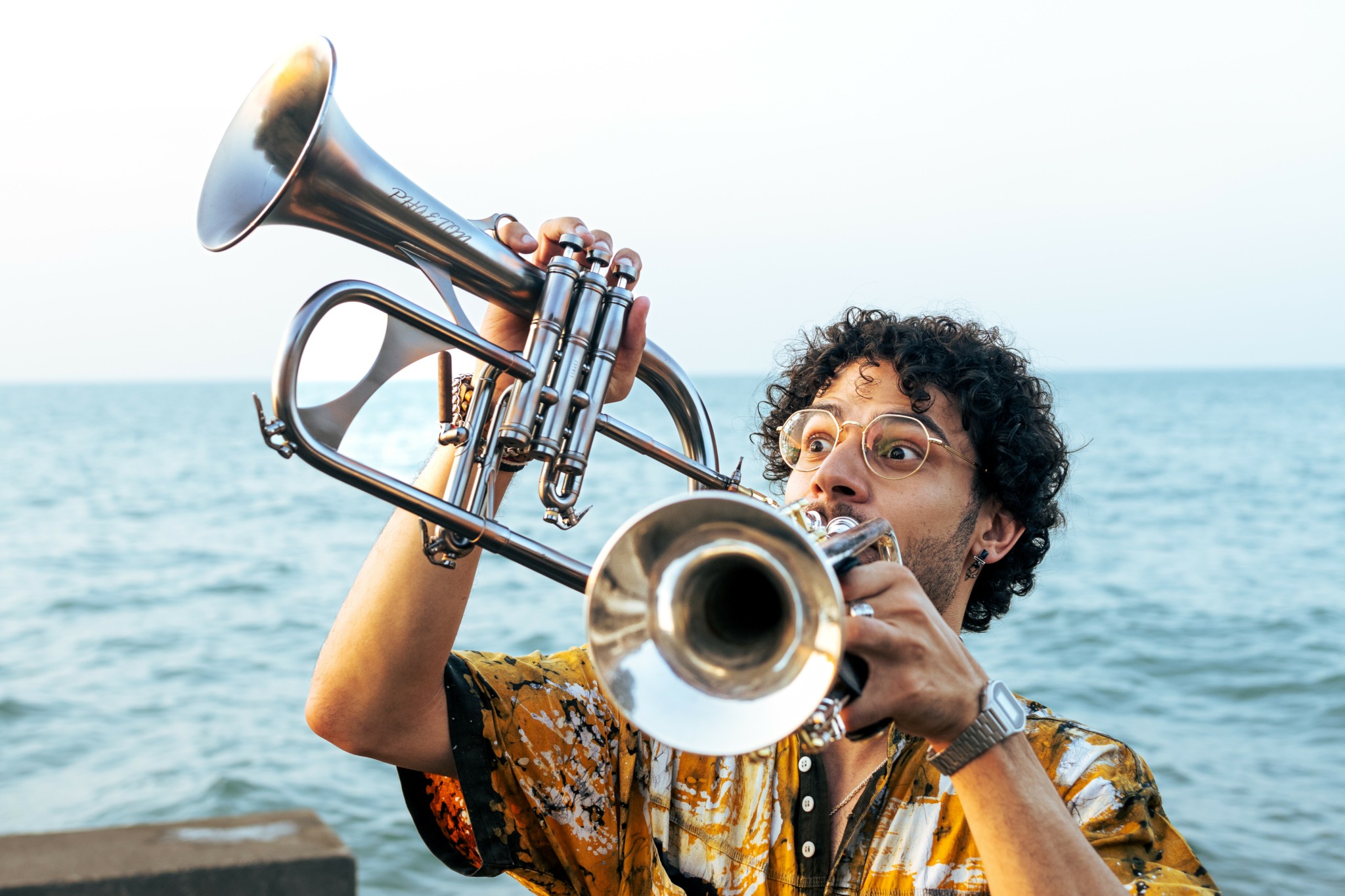
Ricardo , before we move on to more of these sorts of questions, can you take some time to bring our readers up to speed on you and what you do?
I began playing trumpet at the age of 9, in the 4th grade. But I’ve always had an affinity for music. My mother loves telling the story of when I was two and we would take car rides, she would play her salsa and big band CD and I would be in the back clapping along. Or in church, I would be singing the loudest in the congregation, sometimes embarrassingly so. Although, I have always credited my interest in jazz with videogames, specifically the video game ‘Fallout 3.” I used to play the game with my cousin who would babysit me and we would listen to the in-game radio that would play selections from Billie Holiday, Frank Sinatra, Bing and Bob Crosby, and others from that era, and from there I would make playlists on my ipod with those songs and play them in the car when my parents would go on trips.
Regarding my trumpet playing, my father would make sure I practiced every day. I always enjoyed playing and performing but it wasn’t until my senior year of high school that I realized that I wanted music to be more than just a hobby or a side passion of mine. I didn’t have much guidance in regard to how one actually went to school for music. I had just taken lessons with Mr. Randy Karon, who was both the high school band teacher and my private instructor. Given that I came to this realization after the college application cycle was over my selection of institutions was limited and there was even less time to prepare an audition. That fact was complicated by the fact that I was dead-set on a university where I could feasibly study both science and music because I was still torn between the two and up until this point, I was convinced that I was going to become a Neurosurgeon. After much deliberation and nine college applications, I went to school at Lawrence University where I studied Trumpet Performance and Biology.
It was also at Lawrence that I found my voice, mainly because my trumpet professor thought it would help my trumpet playing. I had always sung but to myself. Growing up I listened non-stop to the greats like Billie Holiday, Chet Baker, Frank Sinatra, Hector Lavoe, and Celia Cruz. Although I began singing at 19, which is rather late, thanks to the faith of my professor and a plethora of opportunities I was able to make a career of it. This strong belief and ability to see something in me that I couldn’t see in myself is part of the reason I am a big believer that anyone can sing and there is music in all of us (Thank you, Janet!) Singing and trumpet are both equally important to me and key to my expression as a human being.
To fully answer the questions posed, I am a Trumpeter, a Vocalist, and an Educator. But mixed in with that is a biologically trained thinker, traveler, and multi-linguist amongst other studies and interests which are inseparable and entangled into my approach of music and my presentation of it. Much of my training has been in the classical and jazz worlds with much more of an emphasis on the classical, although now I find myself much more in the jazz scene and in adjacent circles. And while that gave me an incredible foundation upon which to build what I have become, it left me looking for something more to fulfill my musical expression. In my relatively short time on this earth and with the extensive travel and explorations I have made into others’ worlds through art, language, and shared experiences I have come to understand that what I am striving for is to communicate a more complete picture of myself: and a complicated, colorful, and vibrant picture it is. I find that I must meet myself musically where I am and contend with the self that I think I wish to be, and I say think I wish because what I think I want for myself is subjective, predicated on my current experience but I have found some of the most freedom in letting go of this predisposition and accepting, or at the least, entertaining what comes. Although my debuted myself in Chicago as a Jazz musician, my music, I find, is currently trending more to the Latin diaspora. I have fallen in love with the Brazilian diaspora and rich musical culture. But my influences are international and often vocally based. The voice is everything and I often find myself trying to make my trumpet sound more like a voice (but also the same can be said for my approach to the voice, given my love of vocal improvisation). That is probably why I feel so in love with the Carnatic traditions of South India.
I am working on incorporating more of my Latinidad into a contemporary context, wanting to always bring it back to Borinquen (Puerto Rico), although that is a journey that has spanned all of my life. Feeling like a nomad stuck between two worlds, never fully being accepted into either. I want to delve deeper into my island’s musical roots and claim what I can say is my “birthright” but constantly wrestle with the imposter syndrome of whether I really have the right to lay claim to this. I think my music and artistry represent this internal struggle of identity and belonging within the self, and it is one that I believe speaks to others as well. My goal in my music is authentic expression but most importantly human expression. What narratives are we telling, where do they come from and what influences them? These are the questions that I feel like music has the ability to answer for me, both directly and indirectly. As I am sure many will tell you, it is a complicated journey, and I am sure I will look back on this answer with a certain degree of chagrin, but that’s part of the journey and this is where I am now, or at the very least, where I think I am.
In education, I work to make sure my students become whole artists, accessing their full humanity. While I had many teachers who pushed me to new heights and saw potential in me that I couldn’t see or actualize in myself, I had many who simply couldn’t see me at all and in turn, loaded me with emotionally baggage that I have had to learn to unpack and leave by the road along the path to progress. My goal in my work as an educator whether that is private instruction or in the classroom is to remember that while what we are teaching is music, we are teaching people and in turn humanity. Music is a practice of agency and in the same way that humanity, agency, empathy, and compassion, cannot be “beaten” into us through harsh lessons, bullying, or tough love, neither can music. Music is a sonorous expression of our true selves and if we are to learn to access and create from this space then it must be done so from a place of compassion, understanding, and patience. I apply this most in my classroom teaching, when I tell people, that the subject you are teaching is secondary, the primary lesson is how to be a person. I used to have a math teacher tell me “You need to learn, how to learn.” For me, it is just as important to help cultivate the next generation of musicians as it is to help cultivate the next generation of music listeners and appreciators.
All lessons I apply I have learned from my teachers, from those who were patient and saw my humanity and those for whom I had to be patient and see theirs. Music is a birthright and my goal is to have it reach as many as are willing to reach for it, for the rest, to inspire the courage to do so.
Special thanks to Randy Karon, Marques Carroll, Janet Planet, John Daniel, Andrea Giuffredi, Gabrielle Cassone, Victor Garcia, Stephen Burns, Jose Encarnacion, Bill Carrothers, Dr. Elizabeth DeStasio, Dr. Nithya R, Silverio Pontes, and many other teachers and educators that are the reason why I am here today and thank you for the lessons you imparted.
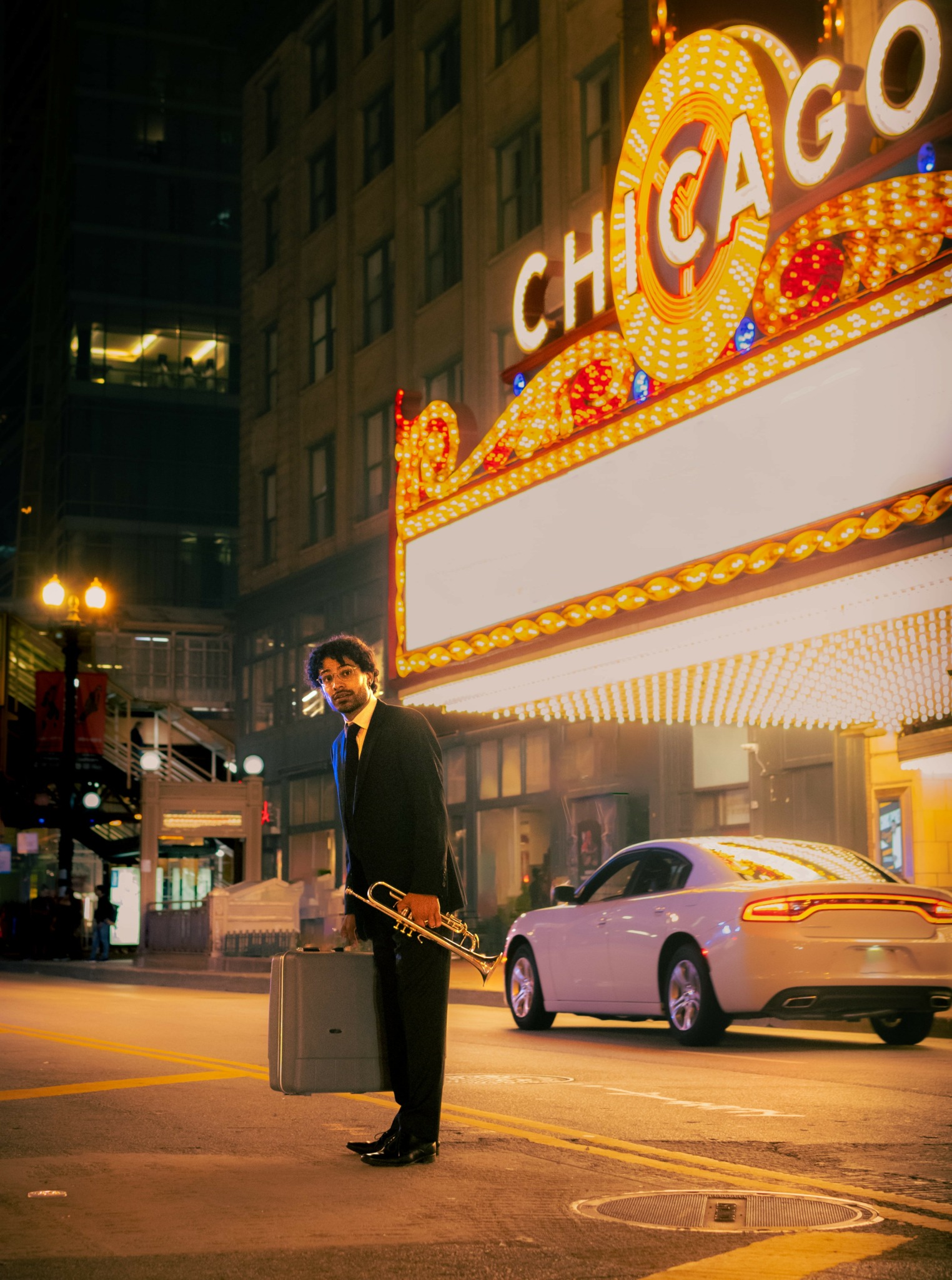
What can society do to ensure an environment that’s helpful to artists and creatives?
The question of how society can better support artists and build and sustain thriving communities in which art is at the center is interesting because, in my opinion, many examples of this already exist. During my travels, while the vastness of cultures that I engaged and participated in was large and wide, the number of countries and peoples I engaged with was relatively small on a global scale. However, it was fascinating to me to see not only how art, which I think goes without saying includes music, presented itself in society but also how it was interacted with. The United States is interesting because many in Western societies, I feel look at it as a pop culture powerhouse, often being the exporter of much of what is considered pop music today but so much has the industry changed in the states due to commercialism, over-saturation, streaming, and, in my opinion, other symptoms which capitalism begets.
Without empirical data I am wary of making generalizations about countries, and peoples, especially from an American perspective when there are many hegemonies at play, however, I think it is safe to say that music, and all art, to thrive, needs to be seen, supported, and engaged with. This means the creation of spaces for it to happen in. I remember when I was living in Rio de Janeiro, one of the things I enjoyed the most was the large crowds of people dancing, eating, and drinking in the street around a street corner or sidewalk while a Samba or Choro table was performing. Sometimes you could walk down the street and run into many different groups playing in Lapa, Ipanema, Copacabana, or Botafogo. Music and people were not relegated to indoor spaces and it was seen, heard, and most importantly egalitarian. Everyone can enjoy the samba. I think it is difficult to say, however, what came first, the chicken or the egg in the sense of, is the music treated this way because the society’s values, or are the society’s values such because of the lifestyle that came to be in the city. Rio is a special place.
However, I think the question is not what can society do to allow music and art to thrive but rather it is a statement: Music and art are necessary for a society to thrive. It is like a person who works constantly without rest, they burn out. Always missing birthdays, holidays, special events, never stopping to smell the flowers. If life were truly a race, would the goal not be to be the fastest to get to the end? Yet we all fear the end. Life is not a race, but a journey that we must all traverse. Should we not enjoy it? Explore the humanity within ourselves and in doing so participate most fully in the state of being to which we are bound. Music and art are a part of the human condition that not only confirms our existence outside of ourselves but also allows us to connect, speak, and express in ways that transcend language, borders, and class. Society needs to see that music is not something supplemental that fits into the gaps after all else is said and done, but a fundamental part of the equation that without it, is cold, apathetic, and isolated.
Encourage your children to play instruments, participate in art programs, read books, and sit in the present moment. Not only is this fundamental to creating a generation with a greater affinity for the community but it is supported with empirical evidence. My undergraduate thesis in biology was a literature review in which I made the case for state-funded arts education citing the many neurological benefits that children get from engaging in the arts, comparable to that of sports without the consequence of severe brain injury like concussions, which severely can set children back developmentally.
Patron art venues, music spaces, and local concerts. When American life is so fast space and so rigid because so many of us are struggling to make ends meet, there seems there be no room for art, or at the very least to support it, however, this is when music and art are needed most. Venues need to pay artists appropriately with living wages. Society should support artist unions to encourage the venues and locales to pay fair wages in which artists can live. We don’t expect doctors to have day jobs, yet art is just as important. And of course, there are those who will say this is simply not true, that you need medicine more than you need music, but why are we forced to make this equivalency? Can we not see that the ability to live fully authentic lives, expressive lives requires both? If you don’t think so, then try it. Don’t listen to music, television, or streaming, don’t look at art, read a book, newspaper, or magazine for a week. Don’t even hum to yourself or journal, and see how well you get along. When we have nothing, our humanity is all we have left.

What’s the most rewarding aspect of being a creative in your experience?
People are the most important thing in my life. I think this is why music fills so many buckets for me. Connection is one of the most important things we can experience in this life, and music is a vehicle that facilitates this and allows us to do so directly, immediately, and without language. Few things in this life will enable us to connect so deeply with those with whom we share very little if nothing at all. This is because music and sound speak directly to the spirit and the soul. Music has given me community and a deeper connection with myself. Connection is not only external but internal as well. This is because the musician is the first listener. There is often this question posed of who/what matters more, the musician or the audience. And the answer is always the audience because the audience is the listeners, but the first listener is always the one making the music and communicating with sound. Music allows as a direct line to others and a window into myself that others can also see and hear. I heard from a friend once that if life is like a still pond, each person is like a pebble tossed into it. On its own the pebble does nothing, but what shapes the surface of the water is the way the ripples of many pebbles thrown in intersect and interact. Life is about intersections. I cannot tell you the countless times I have walked on a stage or a street plaza in a foreign country not knowing the language, the culture, or necessarily even if we knew the same songs, but the trust in your own ability and in theirs and in music allows us to connect. I remember I was in Dakar, Senegal at a jam session, and I was invited to open. I didn’t know any of the musicians on the stage and they just began playing a groove. I panicked and turned around and said “What are we playing?!” to which the bass player smiled and replied “Music!” For me, this connection I can have using this medium is by far the most rewarding part and I would never trade it for anything and wish it reach as many as it possibly can.
Contact Info:
- Website: https://www.ricardojimenezmusic.com
- Instagram: @ricardo.jimenez.music
- Facebook: https://www.facebook.com/profile.php?id=100091809939242
- Linkedin: https://www.linkedin.com/in/ricardodjimenez
- Other: Tamizhi: https://www.youtube.com/watch?v=XXe7aFXYw2c
Rid of You: https://music.apple.com/us/album/rid-of-you/1602974290?i=1602974293
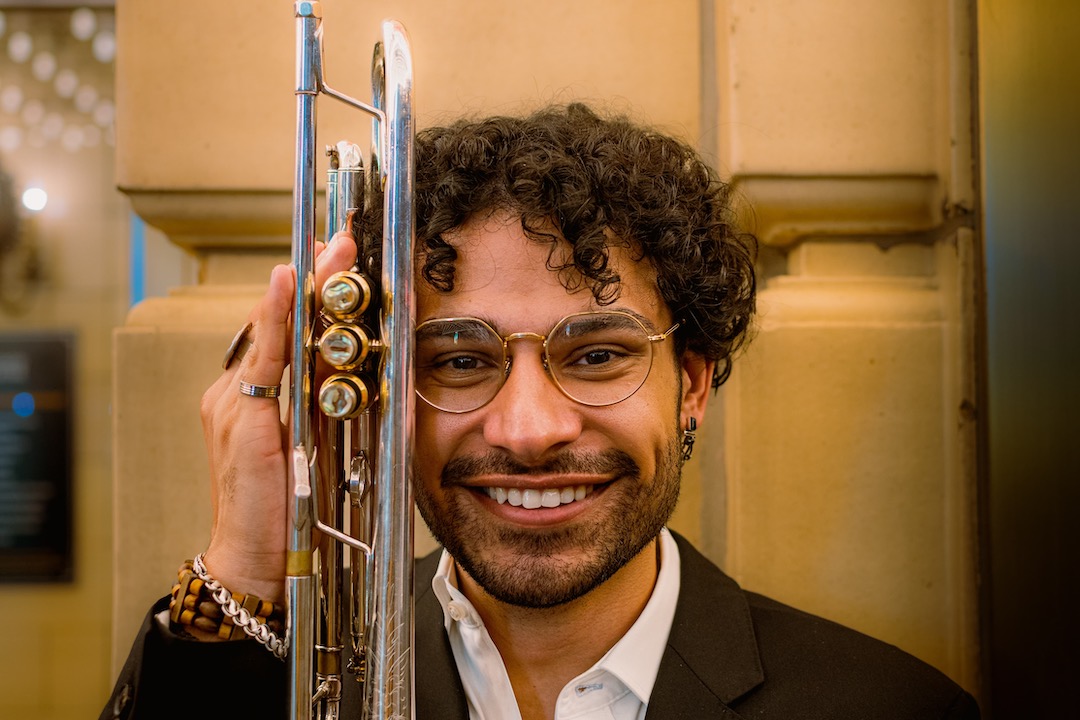
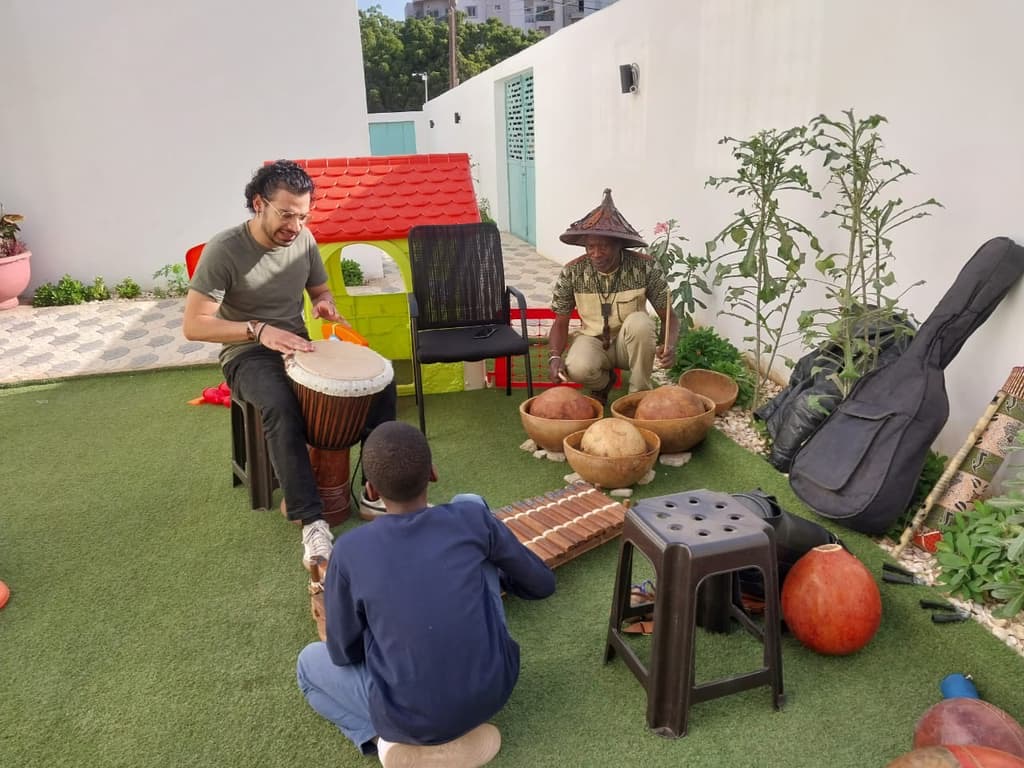
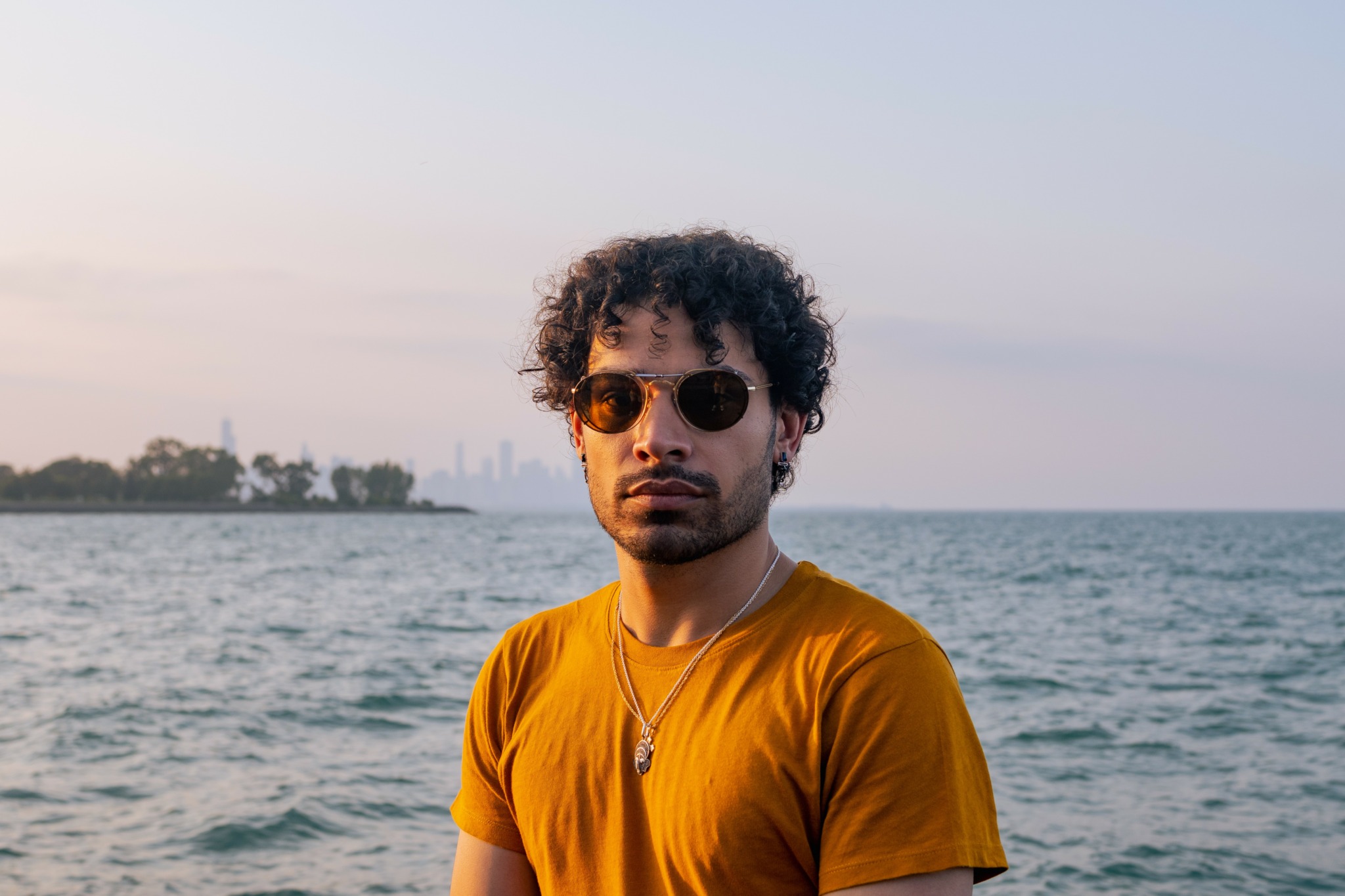
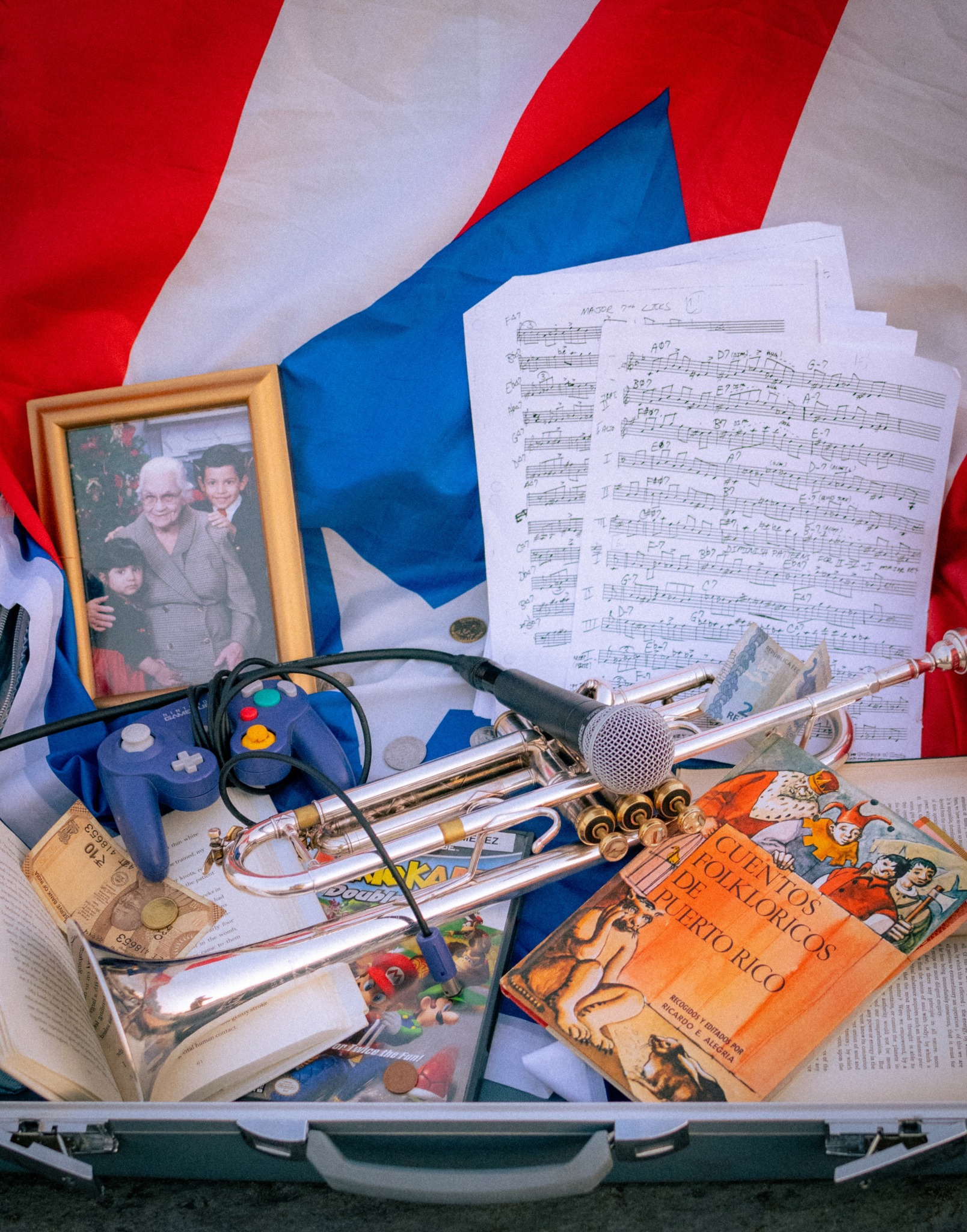
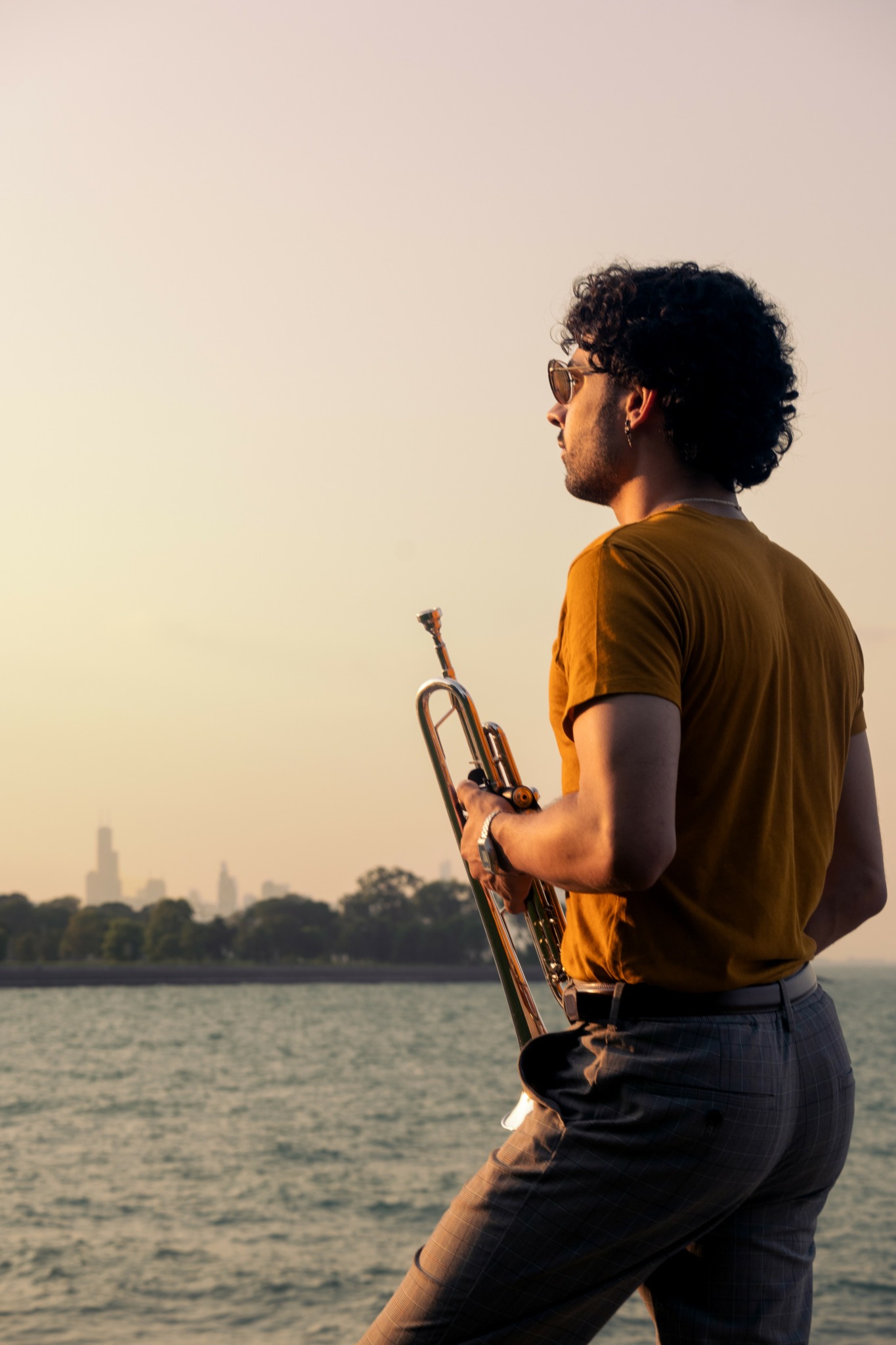

Image Credits
Adebola Oshipitan


